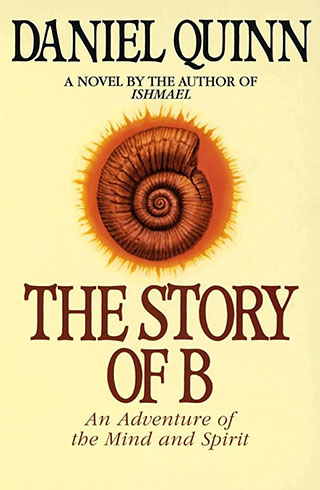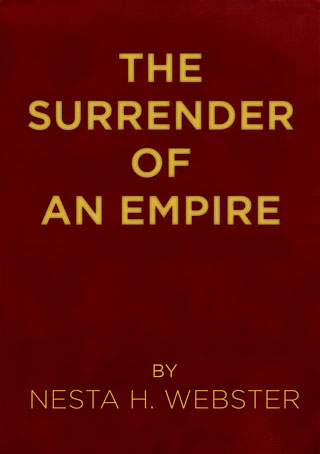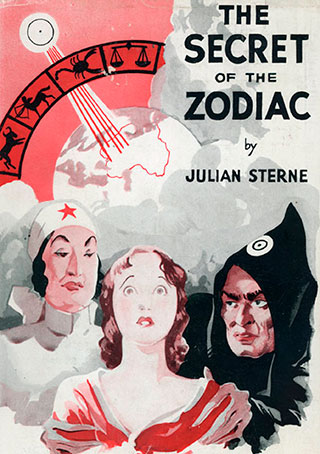Breaking a Delusion of Cause and Effect
 Human beings tend to define themselves. They sum themselves up. They present themselves with a picture of what they are.
Human beings tend to define themselves. They sum themselves up. They present themselves with a picture of what they are.
They may not do this with precision, but they do it. And the common factor is all about limitation because, after all, definitions involve drawing boundaries. Definitions describe what is inside those boundaries and exclude what’s outside. That’s limitation.
The most pervasive way this process is carried out is through making “the past” the great determinant of the present, as if the past is a series of links that, naturally, shape the ongoing Now.
“The past adds up to the present.” Cause and effect. It’s a nice neat package.
And if past history isn’t enough, people can resort to a vague idea of genetic determination. Or inherent and permanent IQ. Or the pressure exerted on them by their environment. More cause and effect.
Finally, you can add a cherry on the cake: open possibility for the future, if it exists at all, comes from the universe, or The Force, or the cosmos, squeezed out of a tube like toothpaste and passed to a person by the grace of a Something that responds to good behavior and patience…
The whole notion of cause and effect as a chain is a reality that is perceived at a certain level—and what breaks the chain is entering into a level where that rule doesn’t apply.
This higher level flows from creation. This is where creating and imagination and greater energy combine to produce new realities. This is where and how a life undergoes a great and unprecedented change.
Societies and civilizations operate within a context of cause and effect. They thrive, to the extent they do, on that principle. They promote the principle and educate according to it.
But societies and civilizations, sooner or later, abandon the individual in favor of the group. They explain this preference in many ways, just as a drug addict spools out his reasons for using drugs.
However, the individual can take action on a very different basis.
Imagination has nothing to do with conventional cause and effect. It isn’t interested in adhering to sequential time or “the one and only space.”
Because of this, people believe imagination doesn’t really fit into the world.
People are disposed to using imagination as if it were a cause-and-effect blueprint that mirrors physical reality. This is backwards. Imagination creates its own worlds and these worlds can be fashioned without such limits.
Energy-imagination-creation is the jumping-off point from traditional cause-and-effect.
This is why, ultimately, philosophy takes a backseat to imagination. Philosophy is an attempt to sum up What Exists. Imagination creates new shapes that didn’t exist before.
Logic, which is an indispensable tool for grasping reality at the level of perceiving cause and effect, may state that A implies B, but imagination can say A implies Z or A implies B, Z, and Q.
If physical reality could send a message it would be, “Here I stand. I am a chain of cause and effect, and you are part of that chain.”
The individual says, “I create beyond that message.”
The individual can delete his own knowledge of what his imagination does, and this is what is meant by self-hypnosis. Self-hypnosis operates by inducing frequencies and vibrations that bring on amnesia. It’s a parlor trick that shrinks space.
What you imagine and create…you can then insert into the world, and even though the world may view that creation within its hypnotic context of cause and effect, that isn’t how it was produced by you.
The physics of energy, space, and time works the territory of various limited types of causation, even when it is speculating about quantum events. Your imagination goes farther. Much farther.
Consider this whole business as a stage play, in which imagination creates reality…and then the human being WHO DID THE IMAGINING steps down his own perception and views what he did within a self-hypnotic space of cause and effect AND PRETENDS REALITY IS COMING FROM SOMEPLACE ELSE.
It’s a joke. A cosmic joke.
When you sleep at night, and dream, when the chains come loose for a little while, you are laughing at the punch line.
If you care to admit it.
From this point of view, the whole concept of Collectivism, The Group, or as I like to call it, the Great Societal Cheese Melt, takes on an interesting aspect:
“Let’s all (each one of us) pretend (imagine) the individual doesn’t exist. Let’s pretend (imagine) we’re all a great Glob. Then let’s step back and view what we’ve done and pretend (imagine) The Universe or some other Force created, in its wisdom, The Collective.”
I pick this example because it underlies the whole effort of Globalism to institute One Planet under One Guiding Hand.
Globalism depends, for its success, on the acceptance of Glob-u-lism.
The recent history of phony epidemics has yet another motive: to convince us that “we’re all in the same boat,” we’re all equally under threat, we all need The Guiding Hand to tell us how we should respond.
These phony epidemics also justify the expansion of the Surveillance State: “We’re all in this together. We need more tracking to identify ‘carriers of the virus’ in our midst, so we can purify The Collective.”
Many, many government programs and edicts are designed to bolster the concept of the Collective. That is their underlying goal.
At the root is a psychology of the group: the individual is a fiction, an outmoded concept that may have been useful at one time, but has no currency now—because we have ascended to a “higher state of consciousness.”
This is the pernicious, driving psychology of the 21st century.
Any individual who is seeking an out and an excuse can surrender to the Glob.
This is the wider meaning of the preposterous concept used to justify universal vaccination: “herd immunity.”
“Yes, welcome. Join us. You’re now protected because you’re part of us. You’re absorbed in the Great Body.”
The author of three explosive collections, THE MATRIX REVEALED, EXIT FROM THE MATRIX, and POWER OUTSIDE THE MATRIX, Jon Rappoport was a candidate for a US Congressional seat in the 29th District of California. He maintains a consulting practice for private clients, the purpose of which is the expansion of personal creative power. Nominated for a Pulitzer Prize, he has worked as an investigative reporter for 30 years, writing articles on politics, medicine, and health for CBS Healthwatch, LA Weekly, Spin Magazine, Stern, and other newspapers and magazines in the US and Europe. Jon has delivered lectures and seminars on global politics, health, logic, and creative power to audiences around the world. You can sign up for his free emails at www.nomorefakenews.com
Digital discoveries
- Migliori Casino Online
- Casino Non AAMS
- Siti Casino
- Sites De Paris Sportifs Belgique
- Tous Les Sites De Paris Sportifs Belgique
- Meilleur Casino En Ligne Belgique
- Casino En Ligne Belgique Bonus
- I Migliori Casino Online
- Non Aams Casino
- Scommesse Italia App
- Migliori Casino Online Esteri
- Paris Sportif Crypto Sans Kyc
- Site De Paris Sportif
- Sweet Bonanza Avis
- Paris Sportif Ufc
- オンラインカジノ 出金早い
- Casino Live En Ligne Français
- Site De Paris Sportifs
- Meilleurs Nouveaux Casinos En Ligne
- Casino En Ligne Français
- Casino En Ligne
- Casino Retrait Instantané
- Casino En Ligne Fiable
- Meilleur Casino En Ligne 2026
- Casino En Ligne Retrait Immédiat
- Casino Français En Ligne
- Casino Italia Non Aams
- Casino Con Free Spin Senza Deposito
- Siti Di Scommesse Non Aams
- Migliore Casino Non Aams
- Casino Online Non Aams 2026
- 토토사이트 모음
- Top 10 Trang Cá độ Bóng đá
- Casino En Ligne
- Casino En Ligne France
- Casino En Ligne Argent Réel
- Casino En Ligne Retrait Immédiat 2026
- Nouveau Casino En Ligne 2026
- Casino Online Stranieri








